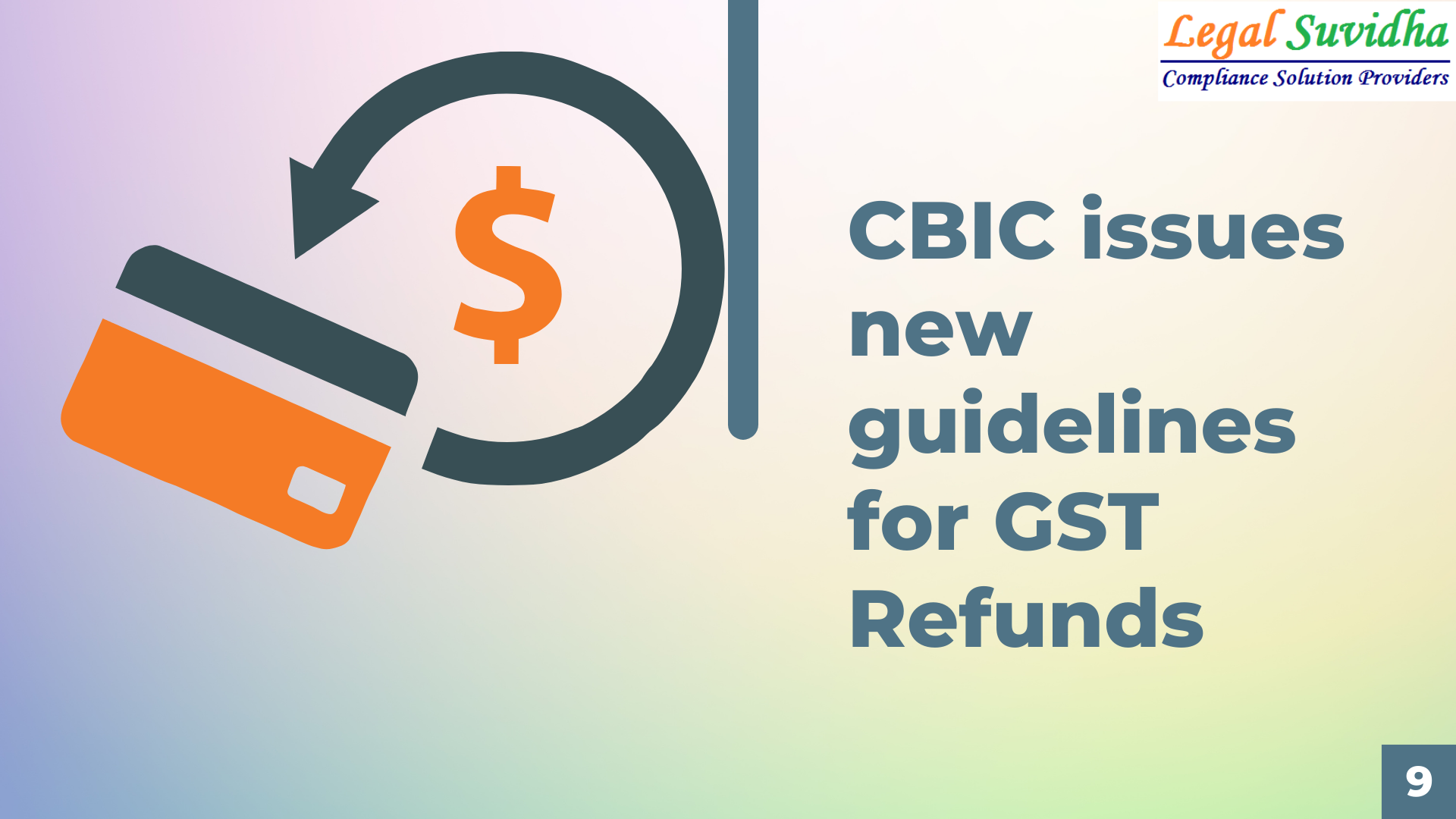NEW GUIDELINES FOR GST REFUNDS
What is GST refund?
Usually when the GST paid is more than the GST liability a situation of claiming GST refund arises. Under GST the process of claiming a refund is standardized to avoid confusion. The process is online and time limits have also been set for the same.
When can the refund be claimed?
There are many cases where refund can be claimed. Here are some of them – Excess payment of tax is made due to mistake or omission.
- Dealer Exports (including deemed export) goods/services under claim of rebate or Refund
- ITC accumulation due to output being tax exempt or nil-rated
- Refund of tax paid on purchases made by Embassies or UN bodies
- Tax Refund for International Tourists
- Finalization of provisional assessment
How to calculate GST refund?
Let’s take a simple case of excess tax payment made. Mr. V’s GST liability for the month of September is Rs 50000. But due to mistake, Mr. V made a GST payment of Rs 5 lakh. Now Mr. V has made an excess GST payment of Rs 4.5 lakh which can be claimed as a refund by him. The time limit for claiming the refund is 2 years from the date of payment.
Recently CBIC has issued detailed guidelines for sanctioning, post-audit and review of refund claims.
Key feature and short summary of the guidelines have been discussed below. Instruction No. 03/2022-GST dated 14-06-2022.
It has been observed by CBIC that, proper speaking orders have not been issued while issuing the orders for GST refund claims and also currently different GST officers adopted different practices and procedures for sanctioning refunds, which created confusion among the tax payers/business community.
In this regard, to promote the uniformity in practices adopted by GST officers, the GST policy wing of the CBIC has issued detailed guidelines for the sanctioning of the refund claims, post-audit and review of all refund claims.
Speaking orders
- Currently, certain refund applications are rejected without proper speaking orders (with out providing detailed reasoning for such rejection).
- With this Instruction- the GST officers shall provide detailed speaking order with the reasons for sanction or rejection of the refund claims.
These guidelines to GST officers, helps:
- Provide the details to be mentioned in a speaking order
- Tax payers understand and respond to refund rejection order in a timely manner.
In the instructions issued to GST officers, CBIC has listed additional to be checked by GST officer for sanctioning refund. Hence we would have to double on check on the below key points before applying refund applications;
Additional details will be checked by GST officers for sanctioning of Refunds
1. Refund of ITC on account of zero rate supplies
Whether calculation of turnover or aggregate turnover is correct as per provisions
Whether calculation of NET ITC is correct as per provisions
NET ITC should not include input on capital goods
ITC should be restricted to extent reflecting in GSTR 2A/2B.
Submission of E BRC/ FIRC for service exports.
2. For supplies to SEZ’s by DTA
Supplies should be for authorized operations basis LoA.
Supplies should be cross checked with SEZ online portal.
Documents should be endorsed by proper SEZ officer.
Payment should be received by DTA from SEZ against supply.
Post Audit of Refund Claims Post Audit is not required for Refunds upto INR 1L For Refunds exceeding INR 1L, GST department will conduct audit within 3 months from the refund date. Post-audit of refund orders will be conducted in offline mode, till functionality for conducting post-audit online is developed at GST portal.







